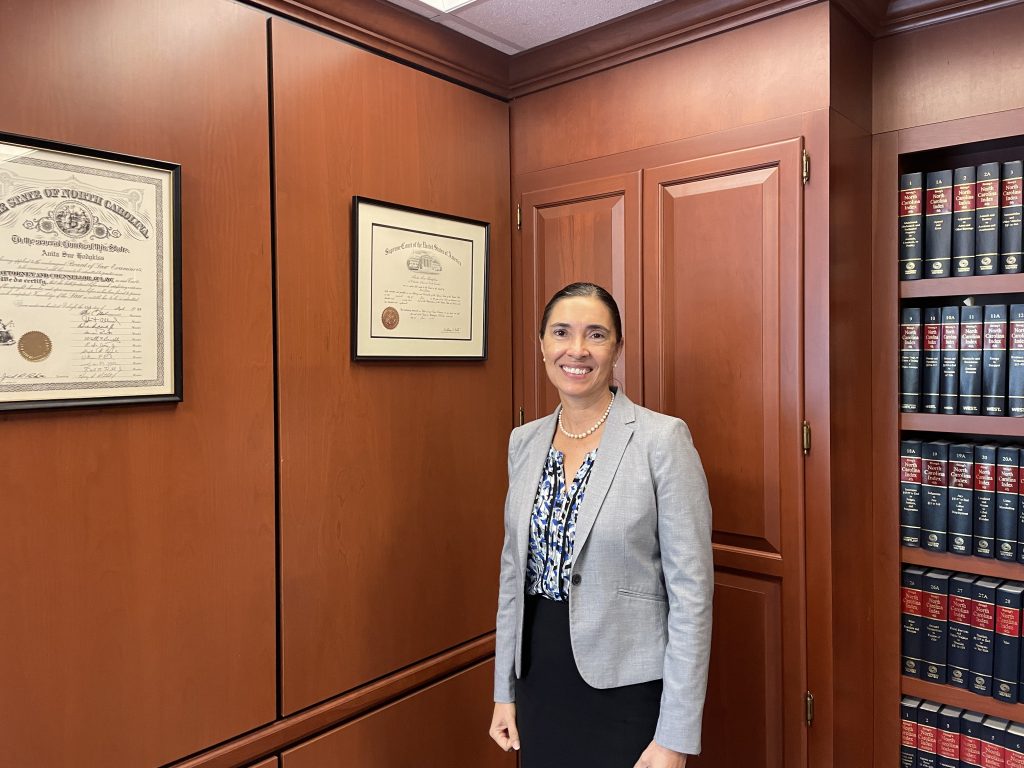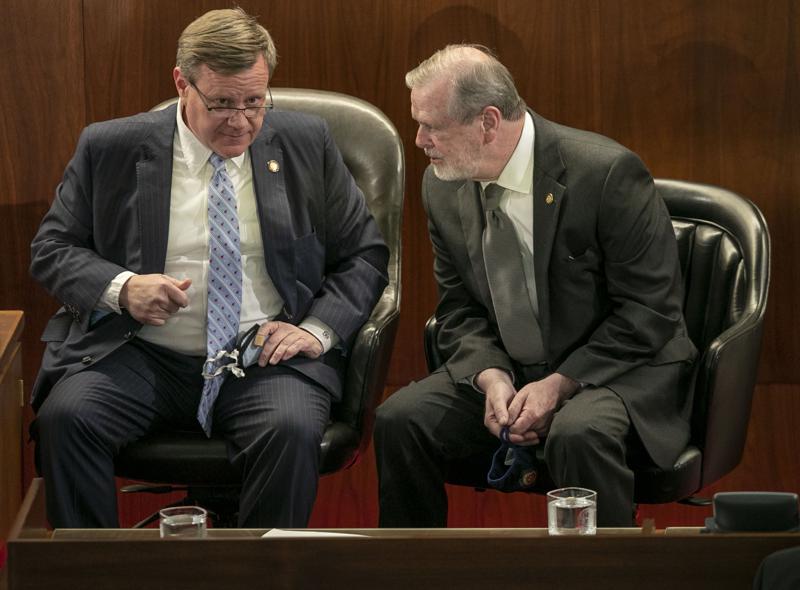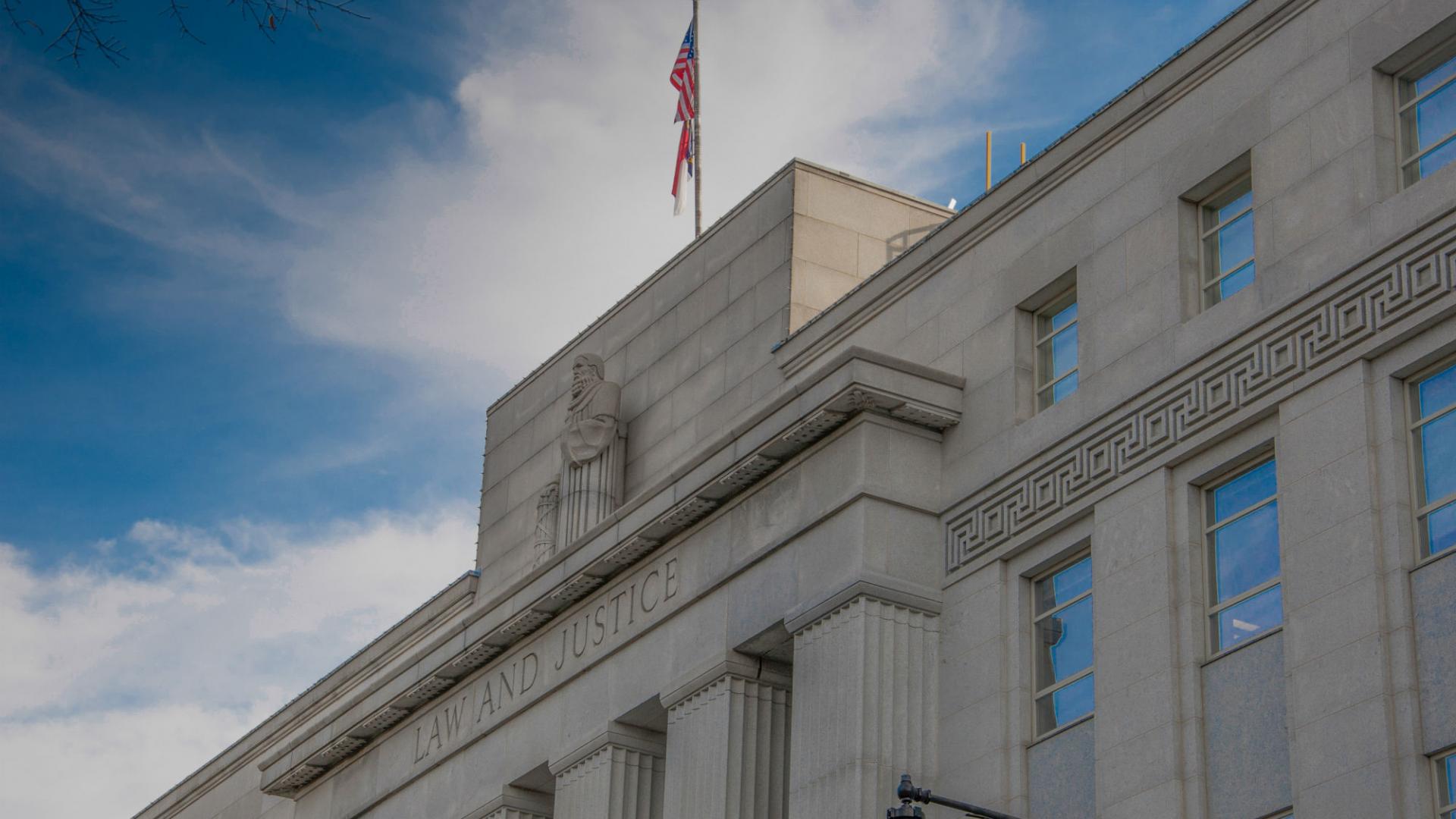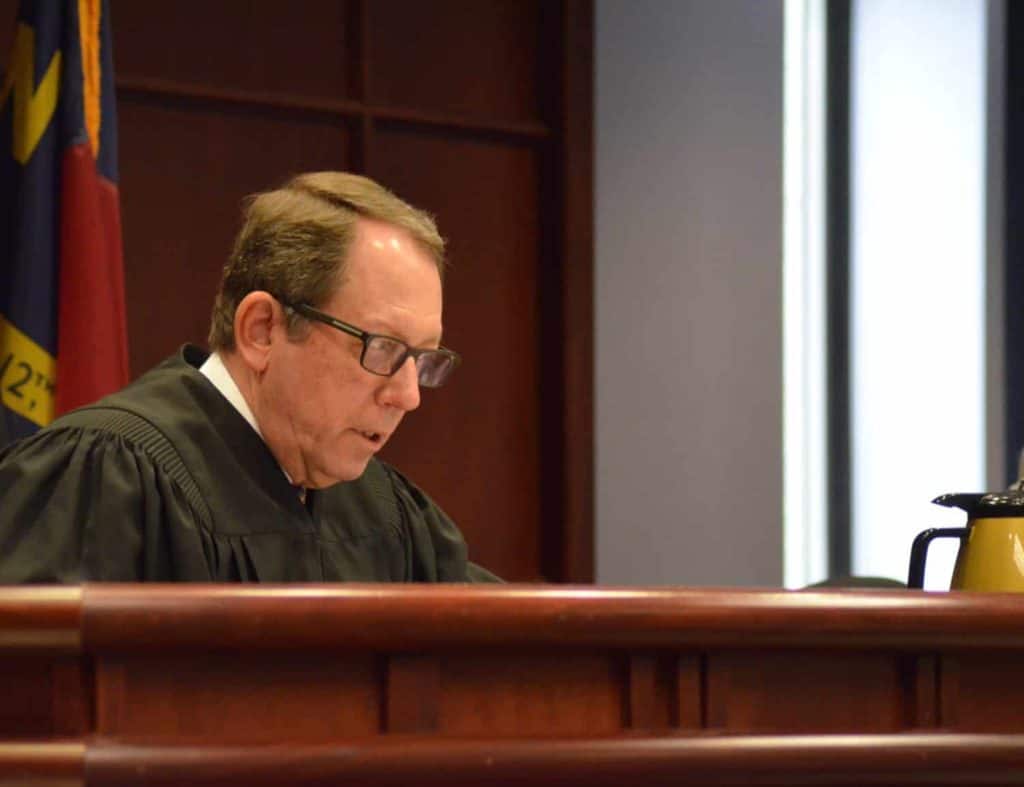Written by THE ASSOCIATED PRESS
A North Carolina Supreme Court justice should stay out of ruling in a longstanding public education funding case because many years ago she represented some of the plaintiffs in the litigation and filed briefs in the matter, Republican legislative leaders said Wednesday.
Lawyers for House Speaker Tim Moore and Senate leader Phil Berger filed a recusal motion request for Associate Justice Anita Earls. The state’s highest court has scheduled oral arguments for Aug. 31 in the latest iteration of litigation over inequities in the public schools and what financial obligations the state has to help eliminate them.
The GOP legislators’ lawyers said Earls, one of four Democrats on the seven-member court, helped in 2005 to represent Charlotte-Mecklenburg school students who successfully entered as a legal party into the “Leandro” litigation — named after an original plaintiff. And she and other lawyers also signed a brief in 2012 on behalf of 10 organizations supporting the plaintiffs’ position that was on appeal at the time, according to the document. Earls signed it at the time on behalf of the Southern Coalition for Social Justice.

North Carolina Supreme Court Justice Anita Earls.
The Republicans’ lawyers wrote that the state Code of Judicial Conduct says judges should disqualify themselves when they previously participated in the case as a lawyer for the parties. The U.S. Supreme Court also has raised concerns over when judges presides over a case in which they have participated as a lawyer, the motion reads.
Other parties in the cases can weigh in on the motion. Under rules released by the state Supreme Court in December, the individual justice identified in a recusal motion can either decide on their own whether or not to participate in a case or ask the rest of the court to do so.
The justices agreed in March to take again the Leandro case when a trial judge last year directed state officials to move $1.75 billion from state coffers to state agencies and spend on a remedial education spending plan. The state Court of Appeals blocked the directive, saying that only the legislature can appropriate state funds. Parties earlier this month began filing their chief appellate briefs for the upcoming arguments.
In landmark rulings in the Leandro case in 1997 and 2004, the state Supreme Court declared there was a constitutionally protected right to obtain the “opportunity for a sound basic education” and that the state had not lived up to that mandate.
Photo via Robert Willett/The News & Observer and Associated Press.







